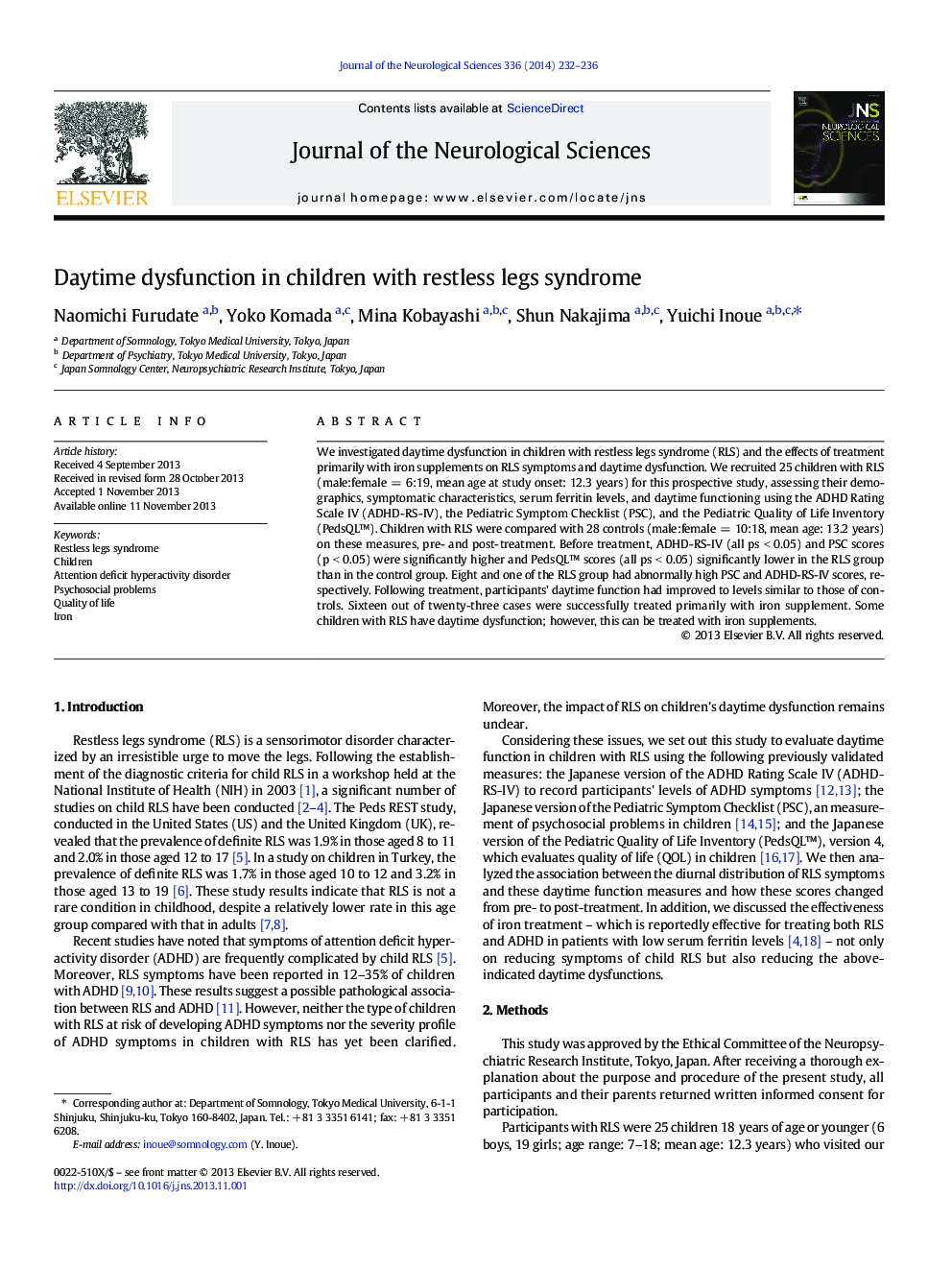| Article ID | Journal | Published Year | Pages | File Type |
|---|---|---|---|---|
| 8278721 | Journal of the Neurological Sciences | 2014 | 5 Pages |
Abstract
We investigated daytime dysfunction in children with restless legs syndrome (RLS) and the effects of treatment primarily with iron supplements on RLS symptoms and daytime dysfunction. We recruited 25 children with RLS (male:female = 6:19, mean age at study onset: 12.3 years) for this prospective study, assessing their demographics, symptomatic characteristics, serum ferritin levels, and daytime functioning using the ADHD Rating Scale IV (ADHD-RS-IV), the Pediatric Symptom Checklist (PSC), and the Pediatric Quality of Life Inventory (PedsQLâ¢). Children with RLS were compared with 28 controls (male:female = 10:18, mean age: 13.2 years) on these measures, pre- and post-treatment. Before treatment, ADHD-RS-IV (all ps < 0.05) and PSC scores (p < 0.05) were significantly higher and PedsQL⢠scores (all ps < 0.05) significantly lower in the RLS group than in the control group. Eight and one of the RLS group had abnormally high PSC and ADHD-RS-IV scores, respectively. Following treatment, participants' daytime function had improved to levels similar to those of controls. Sixteen out of twenty-three cases were successfully treated primarily with iron supplement. Some children with RLS have daytime dysfunction; however, this can be treated with iron supplements.
Keywords
Related Topics
Life Sciences
Biochemistry, Genetics and Molecular Biology
Ageing
Authors
Naomichi Furudate, Yoko Komada, Mina Kobayashi, Shun Nakajima, Yuichi Inoue,
